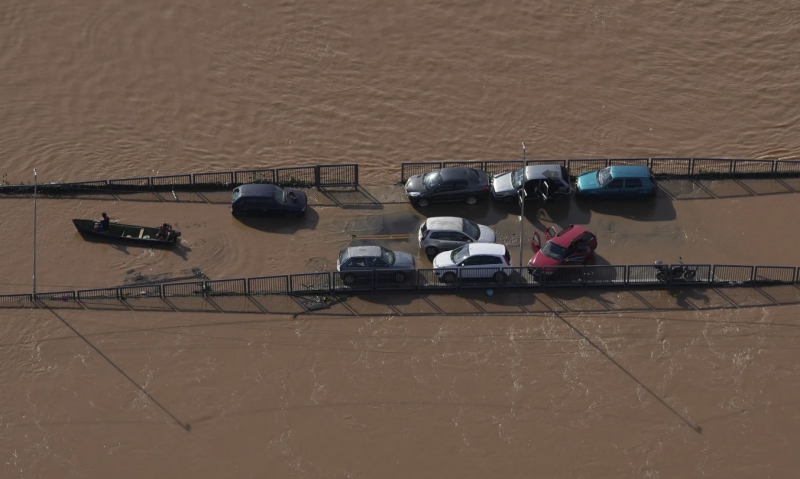
Brazilian authorities are racing against time to deliver aid to flood-ravaged southern regions, including Porto Alegre, amid forecasts of continued rainfall. The disaster, deemed the worst in Rio Grande do Sul’s history, has claimed the lives of at least 95 individuals, with 372 injured and 131 missing. Over 160,000 residents have been displaced, with essential services strained due to water shortages—only two out of six treatment plants in Porto Alegre are operational.
The UN Refugee Agency (UNHCR) and partners are providing vital assistance to affected communities, including Brazilian nationals, refugees, and migrants. Over 41,000 refugees and vulnerable individuals in Rio Grande do Sul have been affected by the floods, losing homes, possessions, and livelihoods.
Furthermore, UNHCR, in partnership with UNISINOS, has established a temporary emergency shelter in São Leopoldo/RS, providing assistance to approximately 1,300 affected individuals. The agency estimates a requirement of $3.12 million to address urgent needs, including financial aid and essential relief supplies.
Before the crisis in Rio Grande do Sul, UNHCR responded to climate emergencies in Acre, Bahia, and Manaus. In April 2024, UNHCR launched its first Climate Resilience Fund to strengthen the resilience of refugees, displaced communities, and their hosts to extreme weather events linked to climate change.
Additionally, the information about the floods and landslides in Brazil, as well as the UNHCR's response, was sourced from the ECHO Daily Flash report dated May 8, 2024.
